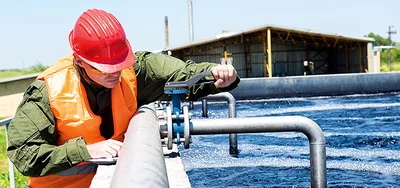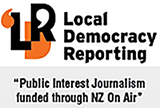Millions spent ungrading water supplies to meet new rules

The clock is ticking for councils to be ready for compulsory chlorination by November 15 which will just be the status quo for the Ashburton District.
More than $6m is being poured into improving water quality and meeting legislative requirements in the Ashburton District which already has chlorination in place.
The Water Services Act 2021 requires all councils to be able to provide residual disinfection (chlorine) for all public drinking water supplies and to be chlorinated by November 15, unless they have an exemption from the drinking water authority Taumata Arowai.
“All of council’s water supplies are chlorinated, so it is status quo,” infrastructure services group manager Neil McCann said.
“There are no plans to seek an exemption from chlorination for any council supply.”
As all of Ashburton District’s schemes are already chlorinated, it is investing in other monitoring and upgrades.
McCann said from the council’s around $8.6m drinking water capital programme, $6.4m is for improving water quality and meeting legislative requirements on its 12 schemes.
The works include various treatment plant upgrades, additional water quality monitoring equipment in the treatment plants, additional water quality monitoring sites and equipment in the network, he said.
The Selwyn District Council is also investing heavily in upgrading water supplies to meet new rules, with $20.2m in water supply projects in its annual plan.
Selwyn has 27 drinking water supplies of which nine are already permanently chlorinated.
The Selwyn council is working to ensure all its remaining supplies have the infrastructure in place to provide chlorination, but is also applying for exemptions for schemes that are not already chlorinated, infrastructure council group manager Murray Washington said.
“As far as we know, Selwyn was the first council in the country to file an application for an exemption from chlorination,” Washington said.
“This is in keeping with our commitment in the council’s long-term plan 2021-2031 that we would work with Taumata Arowai to clarify the requirements for exemption, and work with the community on the costs and rating options for the upgrades needed to gain exemptions.”
Where a scheme does not have an exemption on November 15, temporary chlorination will continue as required by law.
- By Jonathan Leask

